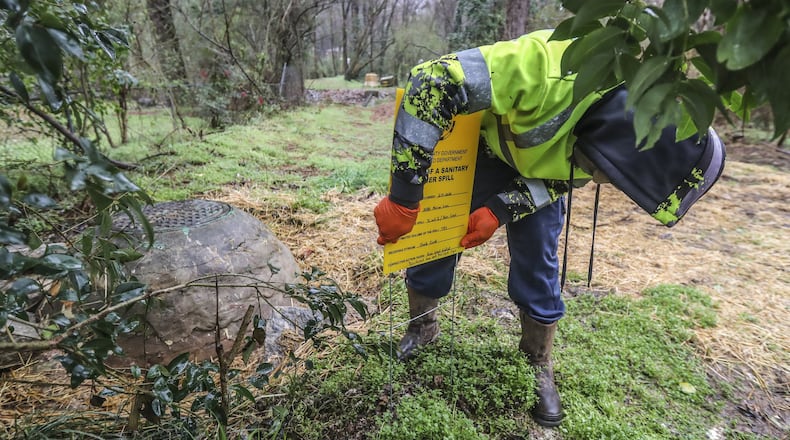A federal judge has dismissed a local environmental group’s lawsuit over sewer spills in DeKalb County.
In a recent opinion, U.S. District Court Judge Steven Grimberg wrote that the suit filed last year by the South River Watershed Alliance “identified serious problems" with DeKalb County’s aging wastewater management system, but couldn’t go forward because of an existing consent decree between the county, the Georgia Environmental Protection Division and the federal Environmental Protection Agency.
DeKalb’s system has spilled millions of gallons of sewage into local waterways this year alone.
The consent decree — which requires DeKalb to repair or replace sewer infrastructure and work toward compliance with the federal Clean Water Act — was first entered in 2011. While the county has made significant progress toward the decree under the guidance of current CEO Michael Thurmond, previous years of mismanagement and corruption have left it years away from meeting the original requirements.
The initial deadline passed in June, and the agreement is currently being renegotiated.
The South River group had argued that fines previously levied against the county were not hefty enough to encourage compliance. It also took issue with the regulating agencies only imposing a concrete deadline in for repairs in certain priority areas, which cover about one-third of the sewer system.
But Grimberg wrote that the group failed to prove the government wasn’t “diligently prosecuting" the consent decree, a necessity for the litigation to move forward.
“Plaintiffs have to do more than show that the agency’s prosecution strategy is less aggressive than [they] would like,” the judge wrote.
Jacqueline Echols, president of the South River Watershed Alliance, said Grimberg’s ruling was misguided.
“His ruling eliminated Clean Water Act protections for two-thirds of DeKalb County and all of the South River, effectively turning back the environmental protection clock 50 years,” Echols said.
In July, the EPD said it and the county had reached an “agreement in principle” on a modified consent decree. No details have been released.
But according to a new filing in U.S. District Court, initial approval for the renegotiated arrangement could come sometime in the next six weeks. After that, the proposal would be subject to a 30-day public comment period.
About the Author
The Latest
Featured



